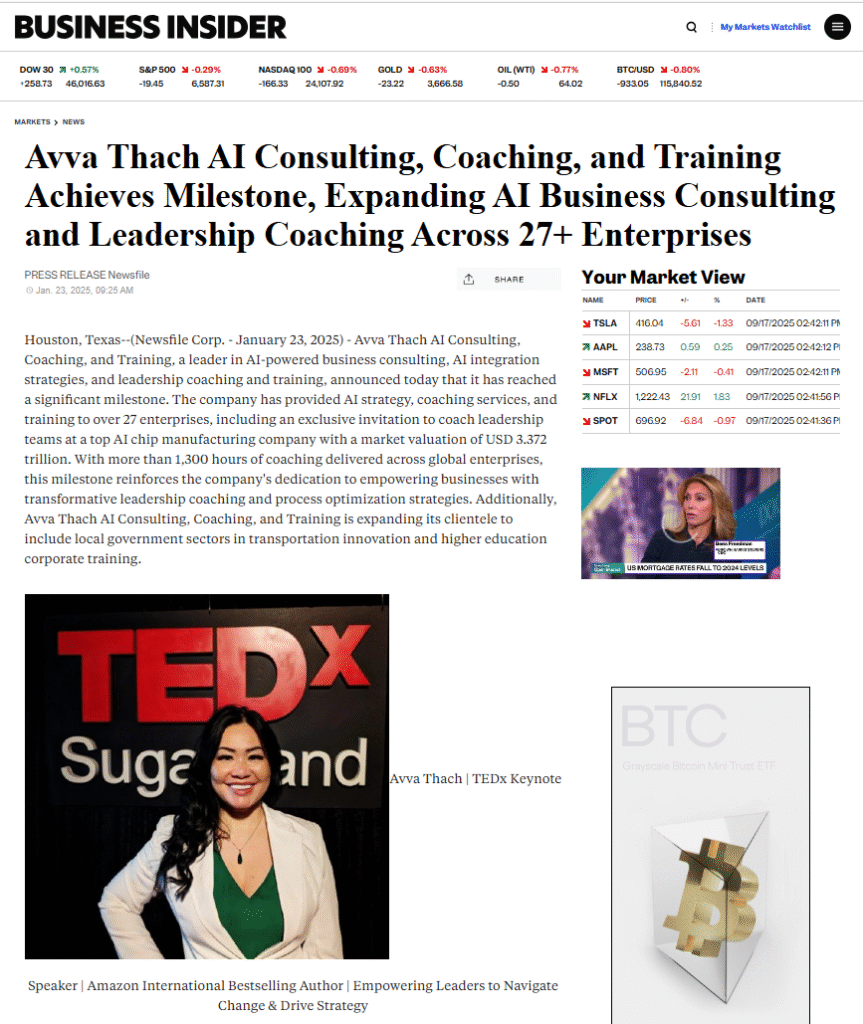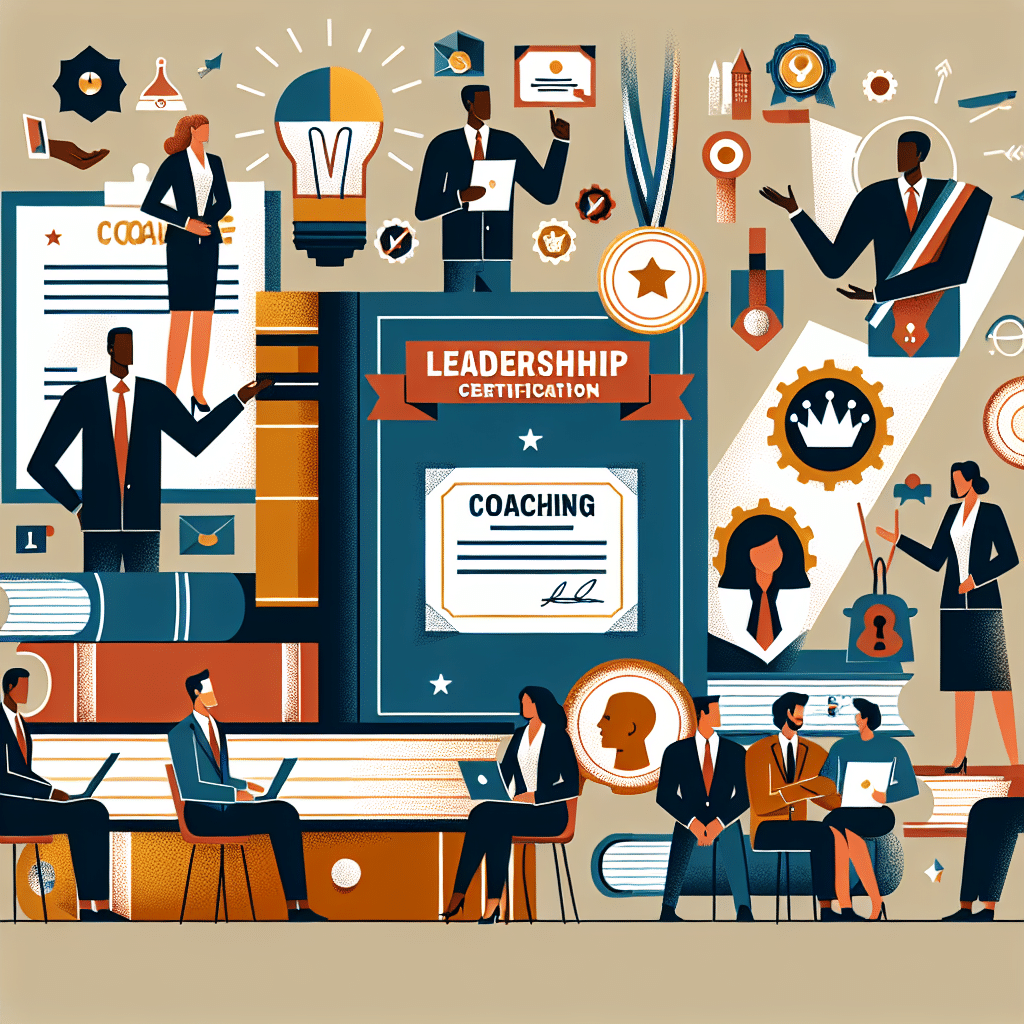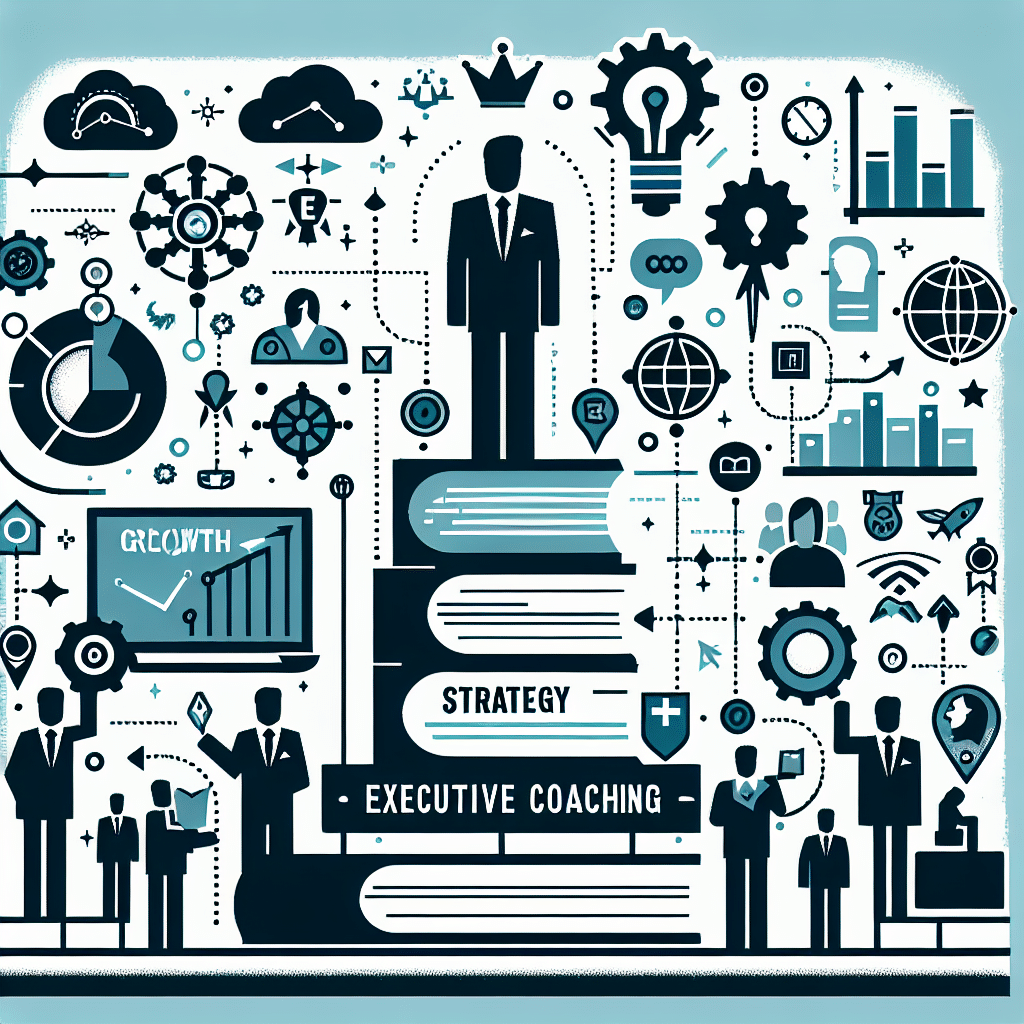The Ultimate Guide to Becoming a High-Impact Leadership Coach
Introduction
Welcome to the world of leadership coaching training, where the art of guiding leaders transforms into a science of empowerment. If you’ve ever dreamt of becoming a high-impact leadership coach, you’re in the right place! This guide is your roadmap to navigating the exciting and sometimes tumultuous waters of leadership development.
In today’s corporate jungle, effective leadership is more crucial than ever. With companies facing rapid changes think AI integration, shifting market demands, and evolving team dynamics the need for skilled coaches who can foster organizational leadership skills is skyrocketing. You might be asking yourself: what does it take to become a sought-after coach in this space?
Fear not! This ultimate guide will cover everything from essential skills to effective strategies and training programs that will set you apart. Whether you’re looking to enhance your team leadership skills, dive into executive coaching, or explore transformational leadership programs, we’ve got you covered.
But wait, there’s more! We’ll also highlight common misconceptions about coaching, share actionable insights on how to cultivate your unique coaching style, and provide tips on leveraging the latest trends in professional growth programs. By the end of this guide, you’ll be equipped with everything you need to embark on your journey as a high-impact leadership coach!

Understanding Leadership Coaching
Leadership coaching is like having a personal trainer for your career minus the sweaty gym sessions. It’s a focused, goal-oriented process designed to enhance an individual’s leadership capabilities through tailored guidance and feedback. Think of it as a turbo boost for your management training, helping you navigate the complexities of leading teams and organizations.
Did you know? According to recent studies, organizations that invest in leadership coaching see a significant increase in employee engagement and productivity. In fact, companies with effective leadership development programs report up to 30% higher performance metrics.
The Importance of Leadership Coaching in Organizations
In today’s fast-paced business environment, effective leadership is more crucial than ever. Leadership coaching plays a vital role in:
- Enhancing Organizational Leadership Skills: Leaders equipped with coaching are better at driving change and fostering innovation.
- Boosting Team Leadership Skills: Coaches help leaders develop strategies that enhance team dynamics and collaboration.
- Facilitating Personal Development: Through personalized feedback, leaders can identify their strengths and areas for improvement, paving the way for career advancement coaching.
- Navigating Change Management: Coaches provide leaders with effective strategies to manage transitions smoothly, ensuring minimal disruption.
Types of Leadership Coaching: Executive vs. Corporate Coaching
While both executive coaching and corporate coaching share the same goal developing strong leaders they differ in focus:
| Type of Coaching | Description | Focus Areas |
|---|---|---|
| Executive Coaching | This is typically one-on-one coaching aimed at senior executives. |
|
| Corporate Coaching | This often involves group sessions or workshops aimed at enhancing team dynamics within organizations. |
|
The choice between executive and corporate coaching often depends on organizational needs. For instance, if you’re looking to refine specific executive skills, executive leadership training might be your best bet. On the other hand, if your focus is on enhancing overall team performance through corporate coaching initiatives, then investing in leadership workshops could yield significant returns.
The bottom line? Embracing leadership coaching training can transform not just individual leaders but entire organizations making it an essential investment for any forward-thinking business aiming to thrive in today’s competitive landscape.
Key Skills for Effective Leadership Coaches
Becoming a high-impact leadership coach is not just about having a title; it’s about mastering a unique blend of skills that can transform leaders and organizations. Think of it like being a chef in a busy kitchen: you need the right ingredients, tools, and techniques to whip up something delicious. Here are the key skills every effective leadership coach should cultivate:
-
Communication Skills Training
Effective communication is the secret sauce for any successful leadership coaching relationship. Coaches must excel in both verbal and non-verbal communication to convey ideas clearly, actively listen, and provide constructive feedback. This skill is particularly crucial in leadership coaching training, where clarity can make or break understanding.
-
Emotional Intelligence Training
Imagine trying to navigate a ship through stormy waters without understanding the weather patterns. Emotional intelligence (EQ) enables coaches to read the room, gauge emotions, and respond appropriately. This skill is vital for fostering trust and facilitating open dialogues during coaching sessions.
-
Decision-Making Skills Workshops
A great leader knows how to make decisions swiftly and effectively. Coaches should be equipped with strategies to guide their clients through complex decision-making processes. Incorporating workshops focused on decision-making skills can enhance leaders’ ability to tackle challenges head-on.
-
Conflict Resolution Strategies
In any organization, conflict is as inevitable as Monday mornings. Coaches need to be adept at conflict resolution strategies to help leaders manage disputes within teams effectively. Teaching techniques such as active listening and negotiation can turn potential conflicts into opportunities for growth.
-
Team Leadership Skills Enhancement
A coach’s ability to enhance team leadership skills is paramount in fostering high-performance teams. Providing insights into effective team dynamics can help leaders leverage their team’s strengths while addressing weaknesses.
-
Adaptive Leadership Courses
The business landscape is ever-changing; thus, coaches must impart adaptive leadership skills that prepare clients for dynamic environments. These courses focus on flexibility and responsiveness key traits for today’s leaders navigating constant change.
-
Innovative Thinking in Leadership
The best leaders are often those who think outside the box! Coaches should encourage innovative thinking by introducing creative problem-solving techniques during sessions. This approach not only inspires fresh ideas but also empowers leaders to challenge the status quo.

By honing these essential skills through various training programs like emotional intelligence training or decision-making workshops you’ll equip yourself with the tools necessary for impactful coaching. Remember, it’s not just about developing others; it’s also about continuously evolving your own skill set!
Leadership Coaching Training Programs
When it comes to leadership coaching training, the right program can make all the difference. Think of it as a well-crafted recipe: you need the right ingredients, precise measurements, and a dash of creativity to whip up something extraordinary. Here’s a rundown of what to look for in practical training programs that can elevate your coaching game.
Overview of Professional Growth Programs
Professional growth programs are designed to equip aspiring coaches with the essential tools and frameworks they need. These programs often include:
- Workshops: Interactive sessions focusing on practical skills like goal-setting techniques for leaders and motivational leadership techniques.
- Seminars: Opportunities to learn from industry experts about the latest trends in executive coaching and leadership development.
- Webinars: Online sessions that provide flexibility while covering topics such as emotional intelligence training and decision-making skills workshops.
Transformational Leadership Programs
If you’re aiming for a profound impact, consider transformational leadership programs. These are designed to help coaches develop:
- Visionary Leadership Skills: Enabling leaders to inspire their teams through innovative thinking in leadership.
- Change Management Training: Preparing coaches to guide organizations through transitions smoothly, ensuring everyone is on board.
- Resilience Training for Leaders: Helping leaders bounce back from setbacks with renewed vigor and strategies for overcoming obstacles.
Mentorship Programs and Their Impact on Development
A solid mentorship program can be a game-changer in leadership coaching training. Here’s why they matter:
- Personalized Guidance: Mentors provide tailored advice based on their experiences, which can significantly enhance your learning curve.
- Cultivating Relationships: Building networks with established leaders opens doors for collaboration and future opportunities.
- Pushing Boundaries: A good mentor encourages you to step out of your comfort zone, honing your team leadership skills and fostering personal growth.
Did you know? According to recent studies, organizations that invest in comprehensive leadership coaching training see a significant increase in employee engagement up to 70%!
The landscape of leadership is ever-evolving, making it crucial for aspiring coaches to stay ahead through continuous learning. By participating in these programs, you’ll not only enhance your own skills but also empower others around you creating a ripple effect of effective leadership strategies throughout your organization. So gear up, get trained, and let’s transform those managerial dreams into reality!
Effective Leadership Strategies for Coaches
In the world of leadership coaching, having a toolkit is essential. Think of it as your superhero toolkit. Each strategy is a unique tool that can transform a struggling team into a high-performing powerhouse. Here are some practical leadership strategies that every coach should master:
- Motivational Leadership Techniques: Motivation isn’t just about cheerleading; it’s about understanding what drives each individual on your team. Utilize techniques like positive reinforcement and personalized feedback to inspire and energize your coachees. For instance, recognizing small wins can create a ripple effect of positivity and drive.
- Goal-Setting Techniques for Leaders: Goals without a plan are just dreams, right? Implement SMART (Specific, Measurable, Achievable, Relevant, Time-bound) goals to provide clarity and direction. This structured approach not only enhances accountability but also helps in tracking progress effectively. Think of it as your roadmap to success!
- Resilience Training for Leaders: The Road to Leadership Is Often Bumpy. Equip your clients with resilience training that focuses on helping them bounce back from setbacks. Techniques such as mindfulness exercises or scenario planning can help leaders develop a robust mindset that thrives under pressure.
Did you know? According to recent studies, teams led by resilient leaders are 30% more likely to achieve their goals compared to those who lack resilience training.
These strategies not only enhance leadership skills but also foster an environment of growth and adaptability within organizations. Remember, effective leadership coaching training isn’t just about imparting knowledge; it’s about igniting transformation.

Cultivating Team Leadership Skills
In the realm of leadership coaching training, cultivating team leadership skills is akin to nurturing a garden it requires patience, the right tools, and a sprinkle of creativity. Just like a garden flourishes with care and attention, so too do teams thrive under effective leadership. Here are some key approaches to help you cultivate these essential skills:
-
High-Performance Team Coaching Approaches
To foster high-performance teams, coaches must adopt an approach that emphasizes collaboration and accountability. This involves:
- Setting clear expectations for team members.
- Encouraging open communication and feedback loops.
- Implementing regular performance reviews to track progress.
For example, utilizing frameworks from executive coaching can help leaders identify their team’s strengths and weaknesses, allowing for tailored development plans that boost overall performance.
-
Team Building Exercises for Cohesion and Collaboration
No one likes a disjointed team! Incorporate fun and engaging team building exercises that promote trust and collaboration. Think of activities like:
- Escape room challenges to enhance problem-solving skills.
- Workshops focused on emotional intelligence training to improve interpersonal relationships.
- Outdoor retreats are aimed at strengthening bonds through shared experiences.
-
Adaptive Leadership Courses for Dynamic Environments
The business landscape is constantly evolving, making adaptive leadership courses essential for today’s leaders. These courses equip managers with:
- The ability to pivot strategies based on market changes.
- A toolkit of innovative thinking in leadership techniques.
- A focus on resilience training for leaders, enabling them to guide their teams through uncertainty.
Key Takeaway: Cultivating team leadership skills is not just about individual development; it’s about creating an environment where teams can thrive together. This holistic approach leads to enhanced organizational leadership skills that drive success across the board!
If you’re looking to elevate your team’s performance through effective coaching strategies, consider integrating these practices into your leadership coaching training programs. Remember, strong teams are built on trust, communication, and shared goals!
The Role of Continuous Learning in Coaching Success
In the rapidly evolving landscape of leadership coaching training, continuous learning is not just a nice-to-have; it’s a must-have. Just like a top chef who never stops experimenting with new recipes, effective coaches need to keep their skills fresh and relevant to meet the demands of their clients.
Lifelong learning is the secret sauce that helps coaches stay ahead of the curve. It involves ongoing development in coaching practices, which can include attending leadership workshops and participating in emotional intelligence training. This commitment to growth ensures that coaches can offer their clients the most effective strategies and insights.
Key Benefits of Continuous Learning:
- Enhanced knowledge of current trends and techniques in executive coaching.
- Improved adaptability to diverse client needs and organizational changes.
- Increased credibility and trust among clients due to up-to-date expertise.
A common misconception is that once you complete your initial coaching certification, you’re set for life. Spoiler alert: that’s not true! The world of business coaching services is constantly evolving, driven by new research, technological advancements, and shifting workplace dynamics. For instance, incorporating innovative thinking in leadership or cross-cultural leadership training can significantly enhance a coach’s effectiveness.
Cross-Cultural Leadership Training for Global Impact
As businesses expand globally, understanding different cultural perspectives becomes crucial. Coaches who engage in cross-cultural leadership training are better equipped to navigate these complexities. They can help leaders develop organizational leadership skills that resonate across diverse teams, fostering inclusivity and collaboration.
Practical Strategies for Continuous Learning
- Attend Workshops: Participate in regular training sessions focused on new methodologies and techniques.
- Join Professional Associations: Engage with peers through organizations dedicated to leadership development.
- Pursue Advanced Certifications: Consider specialized programs like transformational leadership programs or adaptive leadership courses.
- Create a Learning Network: Collaborate with other coaches to share insights and experiences think of it as your personal mastermind group!

The importance of continuous learning cannot be overstated. In a world where change is the only constant, staying informed through ongoing education empowers coaches to provide cutting-edge solutions. It positions them as trusted advisors who can lead clients through challenges with confidence, transforming potential obstacles into opportunities for growth.
Takeaway: Embrace continuous learning as an integral part of your coaching journey. By investing time into personal development coaching and staying abreast of industry trends, you’ll not only enhance your skills but also significantly boost your clients’ success!
Conclusion and Next Steps for Aspiring Coaches
So, you’ve made it to the end of this guide. Congratulations! If you’re feeling inspired to embark on your journey into leadership coaching training, you’re not alone. The world is hungry for effective leaders, and with the right skills and mindset, you can be the one to provide that guidance.
As you step into this exciting realm, here are some actionable next steps to consider:
- Identify Your Niche: Are you drawn to executive coaching, corporate settings, or perhaps focusing on specific industries? Defining your niche will help tailor your approach and marketing efforts.
- Pursue Relevant Training: Engage in comprehensive leadership coaching training. Look for programs that cover essential topics like emotional intelligence, communication skills training, and conflict resolution strategies.
- Build Your Toolkit: Equip yourself with a variety of tools and techniques. Think of it as assembling your own superhero utility belt! Incorporate everything from goal-setting techniques for leaders to innovative thinking in leadership.
- Network Relentlessly: Connect with other coaches and industry professionals. Attend workshops, seminars, or even local meetups. Networking can open doors to mentorship opportunities or collaborative ventures.
- Create a Personal Brand: Develop Your Online Presence. Share insights through blogs or social media about effective leadership strategies and transformational leadership programs. This establishes credibility while attracting potential clients.
- Seek Feedback: As you start coaching others, don’t shy away from feedback. It’s crucial for growth. Consider implementing performance improvement coaching methods to refine your skills continually.
Key Takeaway: Becoming a high-impact leadership coach is not just about acquiring knowledge; it’s about applying that knowledge effectively. The journey involves continuous learning and adapting to the evolving landscape of leadership development.
Your path may be challenging at times, like trying to navigate a maze blindfolded, but remember: every great leader started somewhere. Embrace the process, invest in yourself through professional growth programs, and watch as you transform into a beacon of effective leadership strategies!
If you’re ready to take the plunge into this fulfilling career path but need guidance along the way, don’t hesitate to reach out for tailored business coaching services that can set you up for success!

















Leave a Reply